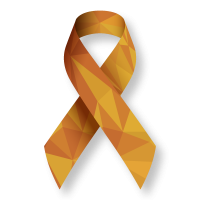When someone close receives a bladder cancer diagnosis, your first instinct will be to offer help. Your heart's in the right place there, however you may not know the best way to support them. It can be hard to know what to say or do.
As a starting point, it's important to recognize that cancer is an overwhelming and emotional experience, both for the person with the disease and their caregiver(s). If you truly want to help, keep it simple — sometimes it's the little things that mean the most.
- Tips for Supporting a Friend with Cancer
- What to Say and What Not to Say to Your Friend Diagnosed with Bladder Cancer
- Essential Support Resources for Cancer Caregivers
- Post-Treatment Monitoring for Bladder Cancer Patients
Tips for Supporting a Friend with Cancer
During this difficult time, your friend with cancer will need help, support, and encouragement. Everyone deals with cancer in their own way so let your relationship and unique dynamic serve as a guide. There's no right or wrong way to be there for them throughout their journey.
Here are some tips and practical things you can do to be a true source of support.
Be Prepared
Learning that someone you care about has cancer is difficult and emotional news. Take time to cope with your feelings so that, when the time comes, you can direct your full focus to supporting and encouraging them.
Practice Empathy
Try to imagine how your loved one may be feeling. Fatigue, weight loss, hair loss, and the emotional toll of a cancer diagnosis are all common side effects of this disease and its many treatments. Instead of commenting on any physical changes, focus on how good it feels to spend time with them. A little bit of empathy goes a long way.
Reach Out Regularly
You don't have to be physically present to offer support. Sometimes a text, phone call, or video chat may be all your loved one can handle. These regular check-ins will let your friend know you're thinking of them. However, make it clear that it's okay if they don't answer or reply.
Make Concrete Plans First
Try not to show up to your loved one's home unannounced. Before visiting, ask if you can come. Tell them that saying no is perfectly fine. Also, don't be afraid to make future plans. This could give your friend something to look forward to during their long and tiring cancer treatments. Flexibility is also key, as your loved one may need to cancel or reschedule if they're not feeling up to visitors.

Treat Them the Same
Your friendship and compassion can be constants in the life of a cancer patient. Try to treat your loved one the same as you always have. Talk about things other than cancer, such as their interests and hobbies. Individuals going through treatment often need a break from talking about the disease. However, allow your friend to share about uncomfortable topics or feelings when they need to.
Offer to Help
Many people feel uncomfortable asking for help. Yet, your friend will undoubtedly appreciate the offer. Sometimes, it's the simplest, everyday tasks that are the most difficult. Keep in mind that if you commit to helping, you must follow through.
Here are some specific tasks you could assist your loved one with:
- Grocery shopping
- Preparing a meal
- Taking care of children or pets
- Household chores, cleaning, and laundry
- Rides to doctor's appointments
- And other responsibilities both big and small
What to Say and What Not to Say to Your Friend Diagnosed with Bladder Cancer
Most people worry about knowing the right things to say to someone with cancer. The most important thing to remember is that it's not what you talk about — it's the fact that you're willing to be there and listen. Try to listen more than you speak so that you can strive to understand how your loved one feels. Don't offer advice or recommendations unless they ask. Instead, be a source of support — someone they can share their fears, hopes, sadness, and concerns with.
If they don't feel like talking, let them know that's okay, too — sit there with them silently. Put on some music so they can relax and take their mind off things. Simply being present is a powerful show of support.
If you're worried about getting a conversation started, here are some things you can say to show support and genuine care:
- I'm so sorry this has happened to you.
- If you want to talk, I'm here to listen.
- Please let me help in any way I can.
- I care about you.
- I'm thinking about you.
- I'm praying for you.
On the other hand, here are some things you should avoid saying, as they could be misconstrued as unhelpful or insensitive:
- I'm sure you'll be fine.
- I know how you feel.
- Don't worry.
- I know what you should do.
- How long do you have left?
Essential Support Resources for Cancer Caregivers
It's important to recognize that cancer affects both the person diagnosed and their caregiver(s). Those responsible for looking after a cancer patient may be so focused on providing care that they forget or may not be able to meet their own needs.
As you invest in the life of a loved one with cancer, be sure to look out for their primary caregiver too.
- Asking if they need help
- Helping them find a support system, such as a cancer support group
- Checking up on their health and wellbeing
- Giving them breaks so they can recharge their mind and body
- Scheduling future activities that they can look forward to
Post-Treatment Monitoring for Bladder Cancer Patients
If you're close to someone with, or recovering from, bladder cancer, it's important to consider their testings needs following treatment. Bladder cancer has a high recurrence rate, so it's crucial to identify and act on any anomalies as early as possible.
Patients that have been treated for bladder cancer have unique monitoring needs to protect against the threat of recurrence. After assessing a patient’s risk profile, doctors will recommend a regular ongoing schedule of cystoscopies to examine the inside of the bladder and urethra.
Cxbladder Monitor is a non-invasive surveillance alternative that can reduce the burden of cystoscopy in those being monitored for recurrent non-muscle invasive bladder cancer. In suitable cases following diagnosis and treatment, Monitor can reduce the frequency of invasive cystoscopy required to enhance comfort. When no recurrence has been detected after several years, Cxbladder Monitor test may provide an alternative to cystoscopy after consulting with your physician.
Learn more about Cxbladder Monitor Contact us for more information






